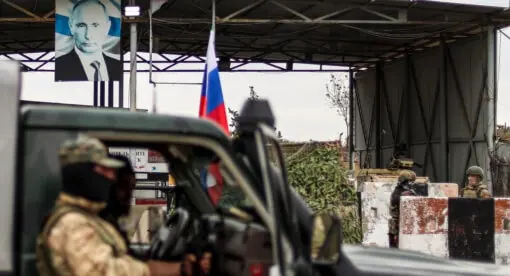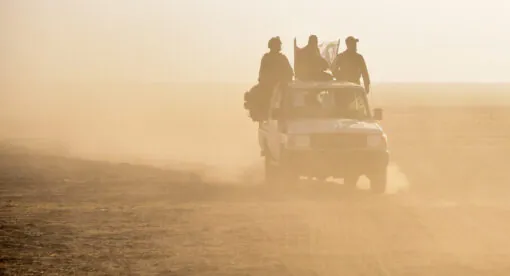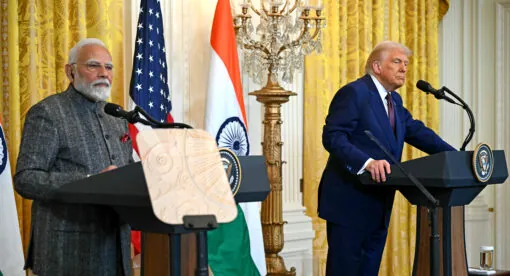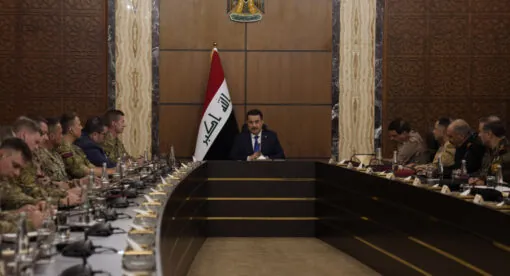At a time of geopolitical uncertainty across Eurasia, Kazakhstan is undergoing a political economic evolution. The country’s transition away from authoritarianism is a unique case of a former Soviet state trying to balance between the conflicting imperatives of maintaining continuity and meeting demands for change. Ours and ITIC’s conversation on the outcome of Kazakhstan’s democratization experiment and its implications for Central Asia, Russia, and China.

Home / The Strategic Implications of Kazakhstan’s Political Economic Reforms
The Strategic Implications of Kazakhstan’s Political Economic Reforms
1 min read
Related Articles

Russia’s Potential Withdrawal from Syria and Pivot to Libya
Russia’s legacy of supporting Syrian President Bashar al Assad’s regime could either lead to its eviction from Syria or its

Iraqi Military Forces’ Capacity in the Wake of a Likely U.S. Withdrawal from Iraq
Read the Policy Report Here In the wake of an intense regional escalation that severed Iran and its proxies across

India’s Tightrope Walk: Navigating U.S.-Israel-Iran Tensions
Indian Prime Minister Narendra Modi’s first visit to Washington under President Donald Trump’s second administration came amid the escalating U.S.-Iran-Israel

After the Coalition: Evaluating the Next Steps for Foreign Forces in Iraq and Syria
Introduction On Sept. 27, 2024, the United States and Iraq announced a two-phase transition plan for the gradual drawdown of